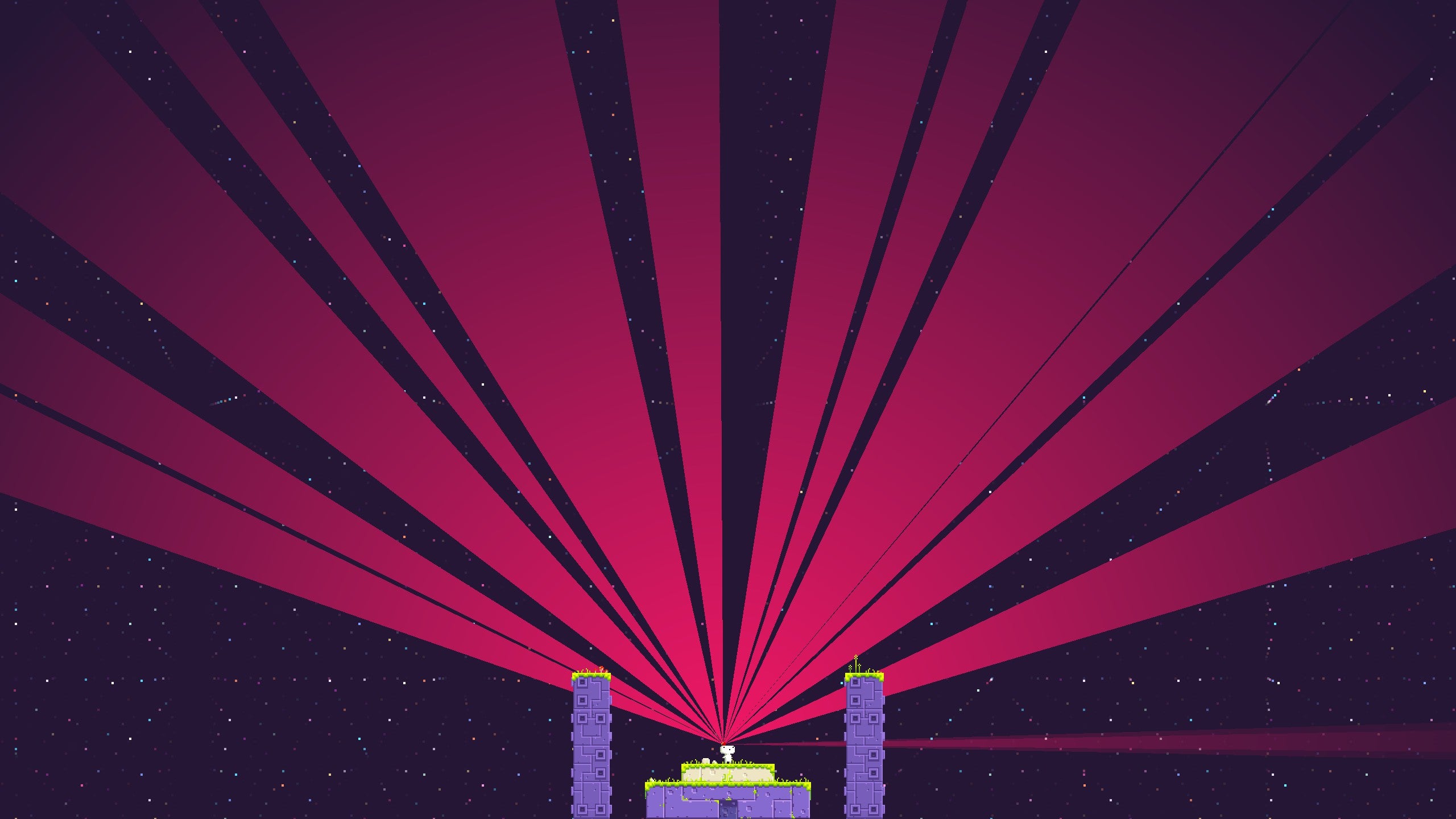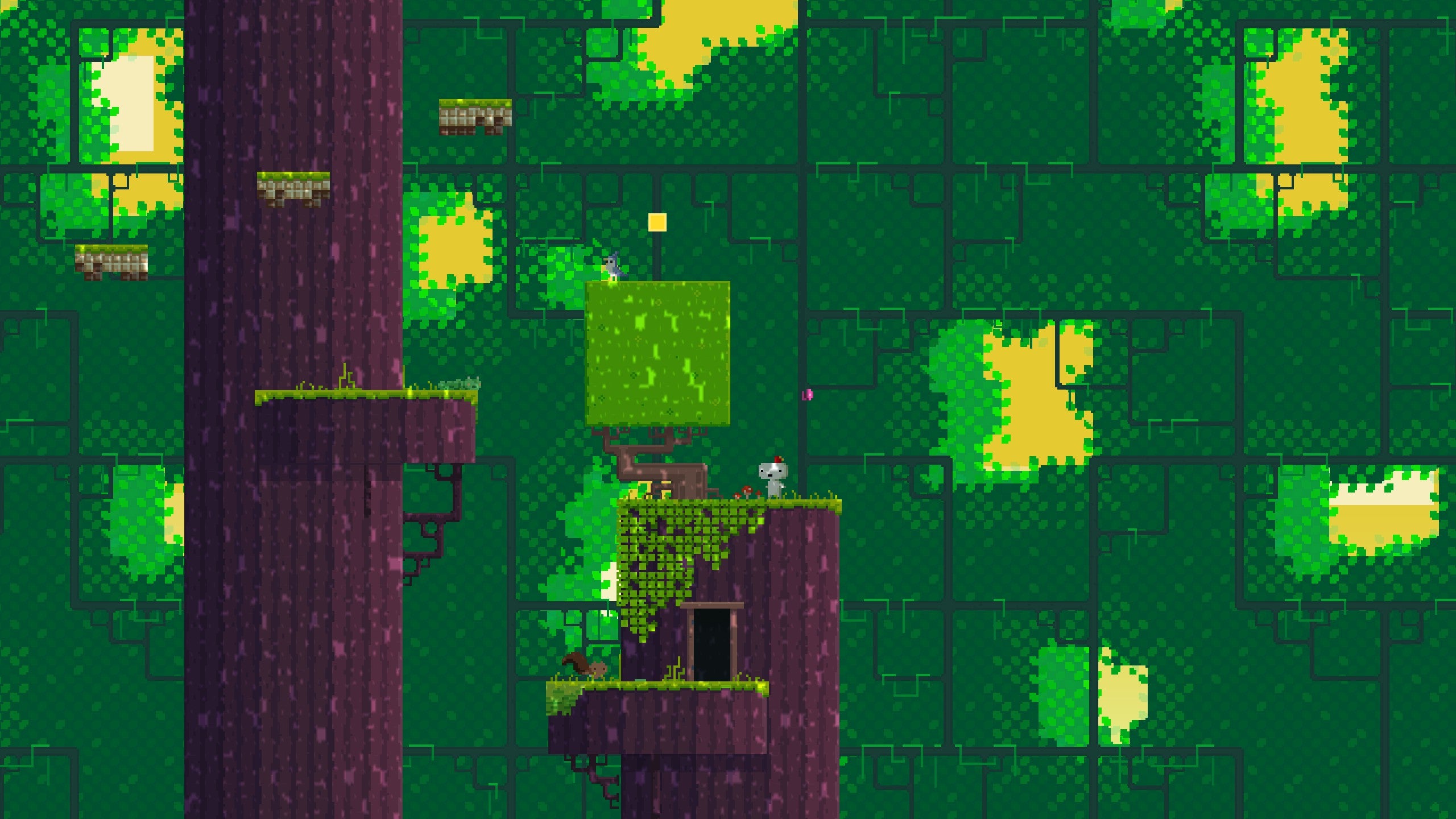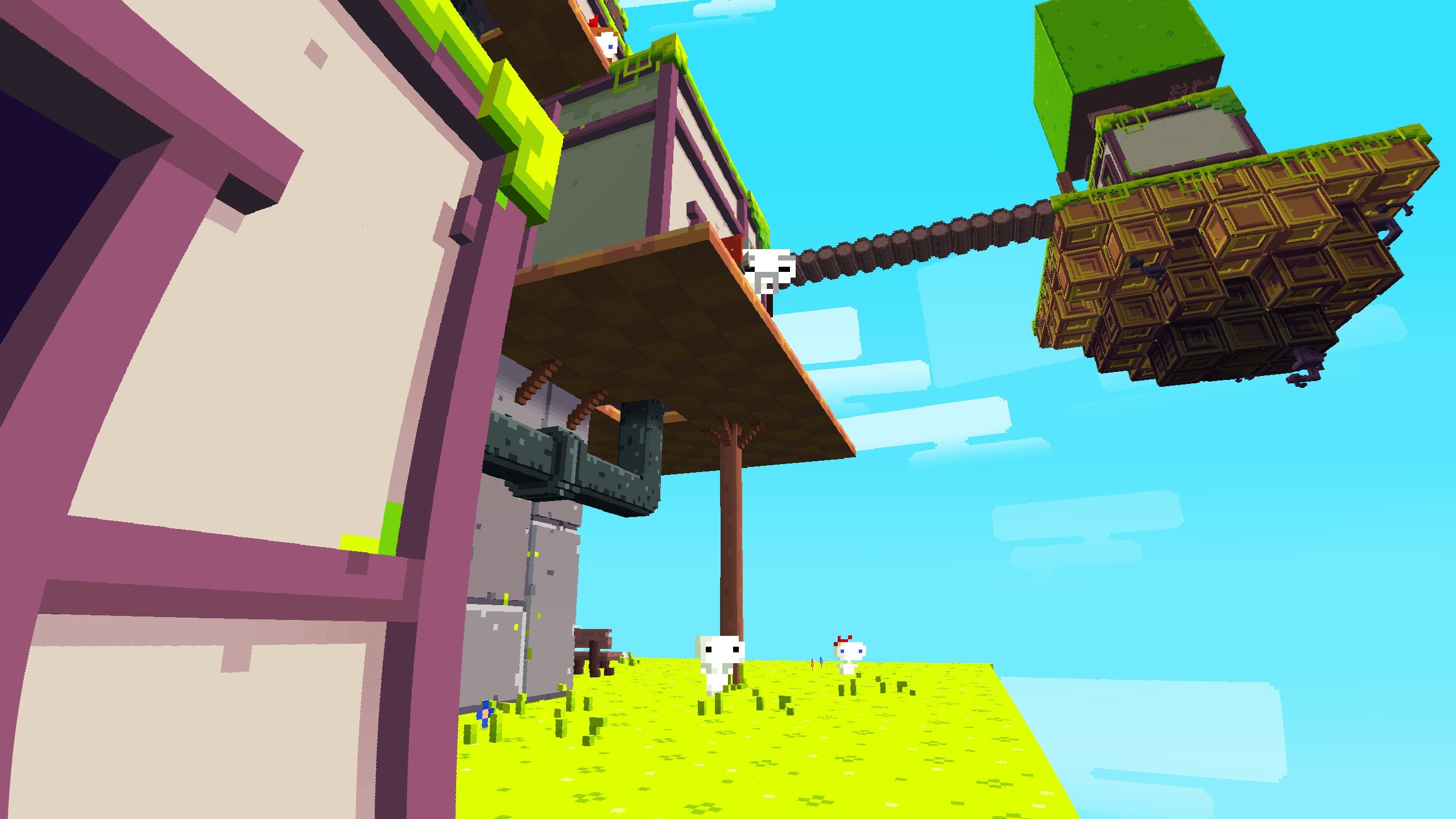Just to recap: Fish left the games industry not long after Fez’s release, cancelling Fez 2 in the process. He then partially re-emerged with indie publishing label Polytron Partners a year later, in 2014, but was driven away again by repeated harassment from GamerGate. The last we saw of him was a collaboration on 2016 VR game SuperHypeCube. I thought I’d drop him a line for editorial process’ sake, then, but I didn’t expect to hear anything back. A games journalist is probably the last person he wants to hear from. But I was wrong and he did reply, and so in a stretched out celebration of Fez’s birthday, here’s what he said. This will sound silly but did you realise the 10-year anniversary was approaching? And if you did, was it something you knew instinctively or did something remind you? Was there a sudden rush of memory or a moment your mind flashed to? Where does ‘Fez turning 10’ take you? Phil Fish: I find it alarming. A decade? That’s absurd. The five-year anniversary stuff we did feels like yesterday. What’s next? An even higher number?! The real kicker is that the tenth anniversary of release means fifteen years since the start of this adventure for me. That’s wild. Time is wild, man. Are you marking the 10th anniversary of Fez in any way? Phil Fish: I’m planning a quiet evening of drinking and crying. One thing that struck me while playing Fez was how timeless it felt, and I suppose that’s something you can never gauge until it’s been around for a while - like, say, a decade! To me, Fez does fall into the same category as those Nintendo games - Marios and otherwise - I remember you saying inspired you. How does that make you feel to hear that? Phil Fish: It’s very flattering, but I don’t know if it’s true. That’s like me grilling one great steak and calling myself a steak master. I think it owes a lot of that feeling of timelessness to the games that inspired it, and the fact that pixel art is still around and has kind of always been at this point. I don’t think it only plays as a retro/nostalgic thing. Good pixel art is still coming out all the time so it still feels contemporary. Definitely never expected it to have that kind of longevity, though. I’m forever surprised by that. Have your thoughts about the game changed in the 10 years since it was released? Perspective can be a powerful modifier. Maybe your opinion has changed multiple times since launch. Has it? What do you think about the game now? Phil Fish: The more time passes, the more impressed I am with what we managed to pull off. We were just kids and we had no idea what we were doing. I cannot stress enough how little we knew what we were doing. To be fair, I still don’t know what I’m doing. Have you thought often about Fez over the years? Is it something that’s always there, ready to surface, or has it gradually faded away? And did you - do you - ever replay it? Phil Fish: Oh it’s definitely always there. It’s a part of me, for better or worse. I’ve had to replay it for testing purposes a few times over the years and that’s been enough for me. I don’t really replay it for fun. I’m good. When you see it there before you - either literally or figuratively - what do you see? Do you see imperfections or an achievement you’re rightfully proud of? And are there things you would change? Phil Fish: Little bit of both. I have a few regrets. Mostly things I’d like to remove. If I ever make a Director’s Cut, it’ll be the rare Director’s Cut with less stuff in it. Do you have any favourite moments in the game, or favourite bits of it? Phil Fish: I’m particularly proud of the whole intro sequence leading up to the first hub. That first act was the part of the game that saw the most revisions, and ended up being the game’s demo. It’s the part I’ve played the most and should be the most sick of, but I’m not. And of course, the soundtrack. I’ve always felt it was the best thing about the game. One thing I think Fez brings out in people is a kind of puzzling pride: a satisfaction in saying they’ve solved the game’s trickiest puzzles and uncovered all of its mysteries. You only have to look at readily-shared pictures of scribbled-in notebooks to see this. Were these deeper complexities always part of the plan, or were they something that began to emerge the more time you spent with it? Phil Fish: We wanted to make a game full of secrets and cheat codes from the start. The plan was always to make a game that you’d talk about in the schoolyard or around the water cooler. Like I did with Zelda when I was a kid. The sort of game that would lend itself to weird urban legends and wild theories. How deep did you think players would be willing to go? Did you ever have to hold back for fear you’d lose them? Phil Fish: My point of reference for that was how deep I was willing to go when I played Riven. That was the threshold. And I was willing to do a lot for that game. The whole notes-taking thing comes from my own experience doing the same thing with Riven. And Riven went a step further. D’ni was a real language, not just a substitution cipher, and at some point, I could read and write it. Losing people was never really a concern because of the way the game was structured. Normal cubes had to be reasonably easy to get, you could reach an ending without having to learn a made-up numeral system. But for anti-cubes, anything was fair game. If something was too difficult for a regular playthrough, that’s when the community would get together to try and solve it. The other side being: what was it like when the game launched and they dived in? Did their reactions to the mysteries surprise you? Phil Fish: It was a huge relief to see that people were willing to engage with that stuff at all. We didn’t advertise any of that stuff, so it’s not like anybody knew what they were really getting into. It was a delight to see people posting pictures of their notes. What surprised us the most is how the community brute forced the monolith puzzle. The way they got around to solving it was way more interesting and satisfying than what we had originally intended for it. Are there any secrets still to be discovered in Fez - any Easter eggs or mysteries people haven’t solved? Phil Fish: I’m not sure. I don’t often keep tabs on that. But last time I checked, there were still a couple of things that had yet to be truly elucidated. And that’s very satisfying to me. I hope it stays that way a long time. Some of the theories people come up with are amazing, though. People have stumbled upon some truly unbelievable coincidences that sure seem like they are a thing, and I’m not about to confirm or deny any of them. Quite a lot has been said about the game’s development but I wonder which are the fond memories you have of it, and have they outweighed and recoloured the kind of tapestry of events as time has gone by? Phil Fish: Honestly the development part is a blur. I pretty much only remember the fun, social highlights. Getting our first office space. Going to [the Independent Games Festival] in 2008 and 2012, doing the conference/festival circuit, going to Sundance with the [Indie Game: The Movie] crew. We used to throw great parties at the Polyplex, as we called it. I think it’s really lovely that even now, 10 years later, people are still excited about the idea of a Fez 2. It’s a testament to the game you made. Do you ever feel the pull to return to it? Phil Fish: Yes! I just need 200 million dollars and 5000 developers for 15 years to bring my grandiose vision to life. Similarly, do you ever feel the pull to return to making games? Or are you making games? Phil Fish: I’m constantly making games and cancelling every single one of them before they’re even announced.


